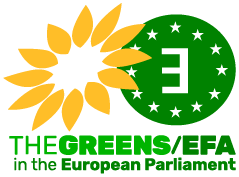Jeudi 13 avril, j’organise un grand workshop sur les avancées scientifiques à propos de l’hypersensibilité électromagnétique. English version bellow
Replays
L’atelier
L’hypersensibilité électromagnétique (EHS), également appelée intolérance environnementale idiopathique attribuée aux champs électromagnétiques (IEI-EMF), est une condition définie par l’attribution de divers symptômes non spécifiques à l’exposition à des champs électromagnétiques d’origine humaine.
Cet atelier du Parlement européen destiné aux députés, à la Commission et aux parties prenantes examinera l’état de la science de l’EHS. Les recherches et les publications d’une douzaine de scientifiques, venant de toute l’Europe, seront présentées avec des affiches de communication et un débat sur les options politiques.
Quand : jeudi 13 avril 2023, de 14h30 à 18h30, Parlement européen, Bruxelles, et en ligne.
Une grande partie de la controverse scientifique et médicale sur la causalité de l’EHS réside dans l’absence de critères cliniques et biologiques reconnus pour le diagnostic. Les hypothèses explicatives vont de l’effet psychologique « nocebo » à la sensibilité individuelle, les réponses individuelles aux CEM dépendant des propriétés génétiques et épigénétiques de chacun. D’autres experts universitaires préconisent d’envisager une « déficience fonctionnelle » ou un syndrome neurologique, ou encore des systèmes de désintoxication perturbés par le stress qui sont saturés par un stress oxydatif excessif.
Quelles sont les dernières découvertes scientifiques sur l’EHS ? Comment pouvons-nous interpréter ces résultats ? Ces recherches peuvent-elles mettre à jour et contribuer au débat scientifique et aux hypothèses actuelles ? Quelles options de santé publique et de politique inclusive peuvent être privilégiées pour soutenir les personnes EHS et améliorer leur qualité de vie ?
Programme et intervenants
14:30 Introduction par Michele RIVASI, députée européenne
14:35 – 15h35 1ère table ronde : Où en est la science ?
Sam J. England, PhD, MP, UK
Frederic Greco, MD, FR
Yael A. Stein, MD, MPH, IS
Dimitrios J. Panagopoulos, PhD, GR
15h35 – 15h55 Pause
16:00 – 17h20 2ème table ronde : Que pensent les chercheurs ?
Andrew A. Marino, PhD, JD, USA
Dariusz Leszczynski, PhD, DSc., FI
Dominique Belpomme, Hon. Prof of Medical Oncology, MD, MSc, FR
17h20 – 17h40 Pause
17:40 – 18h25 3ème table ronde : Que peuvent faire les politiques de santé publique ?
Magali Koelman, MD, EHS Reseau Santé, BE. Absente au workshop, revoir sa présentation:
Dumitru Fornea, European Economic and Social Committee, RO
Klaus Buchner, PhD, Hon. Member European Parliament, DE
18:25 Conclusion par Michele RIVASI, députée européenne
18:30 Fin de l’atelier
English version
13th April 2023 : 14h30-18h30 : European Parliament : Brussels : Room A5E1
Electromagnetic-Hyper-Sensitivity (EHS), also called Idiopathic Environmental Intolerance attributed to electromagnetic fields (IEI-EMF), is a condition defined by the attribution of various and non-specific symptoms to exposure to electromagnetic fields of man-made origins.This European Parliament workshop event for MEPs, Commission, Stakeholders will discuss the state of science of the EHS. Researches and publications of a dozen of scientists, from all over Europe, will be presented at the European Parliament, with communication posters and debate on policy options.
When : 13 April 2023, from 14:30 to 18:30, room A5E1
EHS can be a severely disabling condition, with a relatively high prevalence and needs better scientific understanding and more effective treatments. The French Agency for Food, Environmental and Occupational Health Safety (ANSES) estimates in 2018 the prevalence of electromagnetic hypersensitivity (EHS) at 5% of the general population, aka 25.6 millions Europeans. The ANSES report assumed that « the complaints (pain, suffering) expressed by people who declare themselves to be EHS correspond to an experienced reality and these people need to adapt their daily lives to cope with them. The symptoms experienced by people who declare themselves to be EHS sufferers, as well as the psycho-social isolation experienced by some of them, require and justify appropriate care by health and social care providers ». Additional surveys estimates that the prevalence of people with restricted access to work due to EMF sensitivity at 0,65 % of the general population, equalling near 5 millions EU people.
The European Parliament, since 2009, « calls on Member States […] to grant people suffering from electromagnetic hypersensitivity the status of persons with reduced abilities, so that they can enjoy appropriate protection and equal opportunities ».
Much of the scientific and medical controversy over the causation of EHS lies in the absence of recognized clinical and biological criteria for diagnosis. Explanatory hypotheses range from psychological “nocebo” effect to individual sensitivity, with individual responses to EMF depending on individual genetic and epigenetic properties. Others experts are considering “functional impairment” or neurological syndrome.
What are the latest findings on EHS from the Science? How can we interpret these findings? Do these researches can contribute to the current hypotheses and the scientific debate? What public health and inclusive policy options can be favoured to support EHS people and improve their quality of life?
PROGRAMM & SPEAKERS
14:30 Opening and Introduction, MEP Michele RIVASI
14:35 – 15h35 Panel 1 : What Science finds ?
Sam J. England, PhD, MP, UK
Frederic Greco, MD, FR
Yael A. Stein, MD, MPH, IS
Dimitrios J. Panagopoulos, PhD, GR
15h35 – 15h55 Pause
16:00 – 17h20 Panel 2 : What researchers think ?
Andrew A. Marino, PhD, JD, USA
Dariusz Leszczynski, PhD, DSc., FI
Dominique Belpomme, Hon. Prof of Medical Oncology, MD, MSc, FR
17h20 – 17h40 Pause
17:40 – 18h25 Panel 3 : What public health policies can do ?
Magali Koelman, MD, EHS Reseau Santé, BE
Dumitru Fornea, European Economic and Social Committee, RO
Klaus Buchner, PhD, Hon. Member European Parliament, DE
18:25 Conclusion and Next Steps, by MEP Michele RIVASI
18:30 End of the Workshop
FR / EN INTERPRETATION



